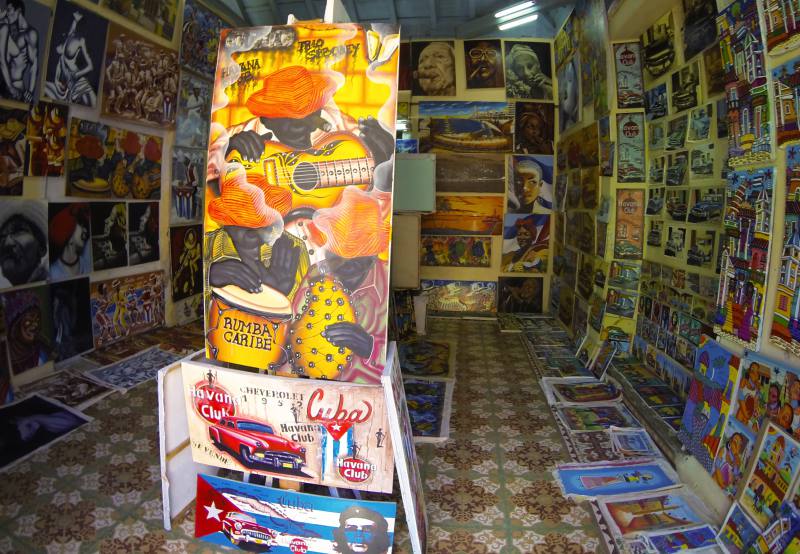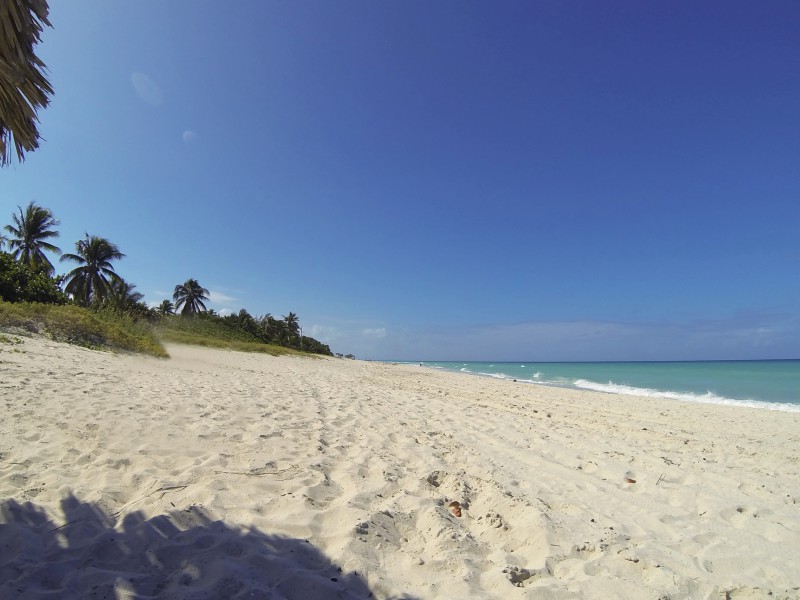Budget
The first thing you need to know is that Cuba has two official currencies. Most locals get paid in Cuban pesos (CUP), while in tourism Convertible pesos (CUC) are used (1 CUC equals 1 USD). With CUP you can only purchase the basics, such as fruits and vegetables, smaller meals, basic groceries and produce, street snacks and collectivo (shared taxi) and intercity bus rides. With CUC you can pay for everything else – accommodation, excursions, meals at sit-down restaurants, more comfortable ‘tourist’ transportation, internet, car rentals, etc. If you stick to the basics – the items and services that you can purchase with CUP your trip to Cuba will be very cheap, but as soon as you start paying in CUC (which is inevitable, since accommodation can only be paid for in CUC) your journey will get pretty expensive.

• A private room for two in a casa particular costs somewhere between 20 and 30 USD (17 – 25 EUR). Private hotel room rates start at around 30 USD (25 EUR).
• Peso (CUP) street food is at least 5 times cheaper than food in restaurants and casas. For example, grilled pork and rice on the street costs around 35p (1.5 USD/1.3 EUR), while a fish, pork or chicken meal at a casa costs somewhere between 7 and 10 USD (6 – 8.5 EUR).
• Viazul bus for tourists (which is comfortable and runs on a reliable schedule) costs around 10 USD (8.5 EUR) for 150 km (93 mi) ride. Astro bus (the intercity bus that locals use) ride is usually around half the price of a tourist bus ride. A rental car costs around 50 USD (42 EUR) per day. Warning: since roads are in poor condition, driving in Cuba is pretty challenging.
To save some more money, check out our Budget cutting tips.

Where to stay
In Cuba, a casa particular (a private homestay) is the most popular accommodation option. It’s usually cheaper than most hotels and since you’re staying with the locals, you get to know the people and their culture, which provides the most genuine Cuban experience. You can find other great accommodation options on Booking. Make sure to search for private rooms popular for romance. 😉 On Airbnb you can rent furnished apartments.
Best time to go
The best time to visit Cuba is from January to February – the weather is great, but since it’s the peak season, it can get a bit crowded, therefore booking accommodation in advance may be a good idea. The temperatures are pleasant year-round. There are only two seasons in Cuba – dry (November to April) and rainy (May to October) season. The likelihood of hurricanes is the highest in August and September.

Other information
♦ Planning and preparation: check out our planning routine here.
♦ Packing: check out the honeymoon adventurers’ ultimate packing list here.
♦ For other travel tips check out Travel like a pro, Travel for couples, Honeymoon styles, Honeymoon activities, Responsible tourism, and Travel resources.
♦ Language: The official language in Cuba is Spanish. Check out the typical travel vocabulary (in English) here. Learn useful travel phrases in Spanish here.
♦ Currency: Cuban peso (CUP) and Convertible peso (CUC). Read more about their dual currency system in Budget.
♦ Visa or other entry requirements: All visitors are required to have a Tourist Visa or Tourist Card (only for purposes of tourism) to enter Cuba. It is valid for a single entrance, for 30 days (it can usually be extended for 30 days). To obtain the Tourist Card you have to enclose a valid travel document and a plane ticket in and out of the country and to pay the Consular fee (around 30 USD/25 EUR). Citizens of visa-exempt countries can travel to Cuba without a Tourist Visa. For more information contact the nearest Cuban Embassy.

♦ Electricity standards: The power plug types in Cuba are A, B, and C, the standard voltage is 110 V and the standard frequency is 60 Hz.
♦ Time zone: UTC-05:00 (Standard Time Zone),
UTC-04:00 (Daylight Saving Time – during the summer, from March to November)
♦ Immunization recommendations and requirements: There are no vaccination requirements for visitors to Cuba. However, it is recommended to get travel vaccines and medicines for tetanus, hepatitis B, typhoid, hepatitis A, and rabies. Currently, Zika virus is a risk in Cuba.
♦ Health and safety tips:
You should always make sure to follow the usual travel safety precautions:
- Leave your jewelry and other valuable belongings in the hotel safe.
- Keep your emergency cash apart from the rest of your money.
- Dress comfortably and carry only the items you will need for the day.
- Don’t carry a lot of money.
- Always make sure to lock your room before leaving the hotel.
- Be aware of your surroundings at all times.
- Stay in well-lit areas.
- Try to maintain a low profile and do your best to fit in.
- Carry a travel wallet/money belt/money pouch for carrying money and documents safely.
- Avoid contact with potential scam artists.
- Avoid showing off valuable belongings (like cameras) in public.
- Don’t count your money in public.
- Keep an eye on your belongings at all times.
For other common health and safety concerns in Cuba, check out Trip Advisor’s Cuba Health and Safety tips.
To stay healthy while traveling, check out our health travel tips.
• The quality of tap water in Cuba is questionable. Therefore it’s safer to drink bottled or filtered water.
* Always make sure to reuse a water bottle to cut down on waste.
• Cuba is relatively close to the equator and the sun is very strong. Therefore, always make sure to use sunscreen.

♦ Local Customs: Locals are very warm, friendly, and hospitable. They tend to be direct, loud and expressive. Tipping waiters, taxi drivers, and hotel staff is customary. There is no particular dress code required on the streets of Cuba. Avoid wearing a bikini elsewhere than on the beach. Avoid spitting and blowing your nose in public. Do not take pictures of locals without asking their permission. A friendly greeting in Spanish goes a long way in Cuba.
Check out top things to see and do in Cuba, as well as top romantic experiences and adventures here.


